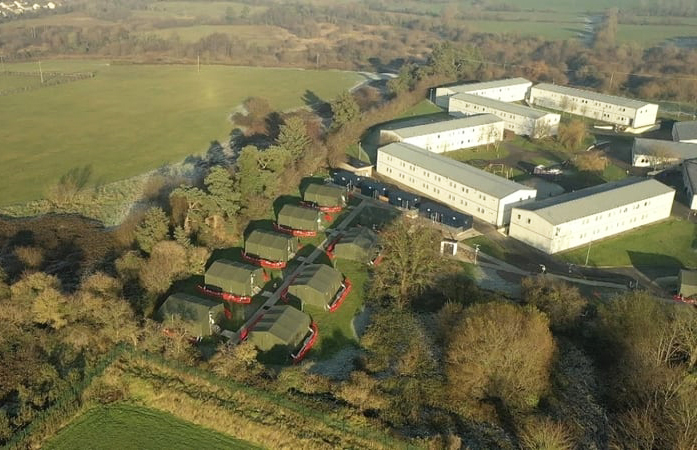
103 men who were living in tents a few miles outside Limerick City have all been moved to more suitable accommodation.
Since September, adult male International Protection Applicants (IPAs), were sleeping in 13 multi-purpose tactical shelter tents, with each accommodating eight people on lands owned by the Office of Public Works, at Knockalisheen, Meelick.
The men had complained about the length of time they were living in the tents and that they were sleeping with their clothes on to try to stay warm in sub-zero temperatures.
A spokesman at the Department of Children, Equality, Disability, Integration and Youth, which has responsibility for providing accommodation for asylum applicants, told the Limerick Post that the International Protection Accommodation Service (IPAS) has confirmed that the men have been transferred to “suitable IPAS accommodation”.
Six men were moved out of the tents last Friday after their situation was highlighted in media reports, but the remaining 97 were still on site as there was no alternative solutions available then.
Local Fianna Fáil TD Cathal Crowe said it was “inhumane” for people to be living in tents, particularly during the big freeze.
Officials from the department said they would “continue to seek accommodation solutions” for IPAs and that it was “was dealing with significantly increased numbers of arrivals in the context of accommodation shortages, and that the Department has no option but to consider all offers of accommodation”.
They said that 14,700 IPAs had arrived in Ireland in the past 12 months, including 13,600 since January 1, compared with an average of 3,500 arrivals between 2017 and 2019.
The tents were the men were sleeping were constructed last July adjacent to a Direct Provision Centre where a further 200 further asylum applicants are living.
Deputy Crowe, who lives near the site, said he had “”grave concerns” about anyone living in tents for long periods.
John Lannon, of migrant rights organisation Doras, said they were pleased that the men had been moved out of the tents after their situation had “dragged on for months”.
He said he appreciated “that if there is a sudden surge of migrants, the tents are a little bit better than being left homeless on the streets”.
However, the men had complained they were feeling “a sense of hopelessness” as the cold weather set in. There were no bathroom facilities in the tents so they had to walk to the nearby accommodation centre to wash and use toilets.









